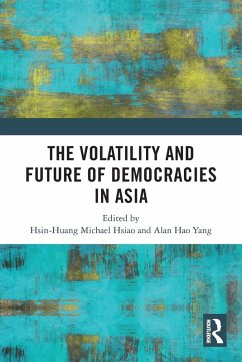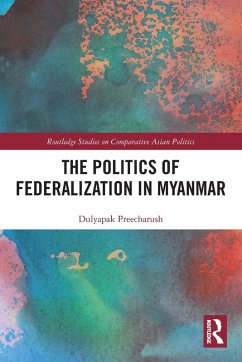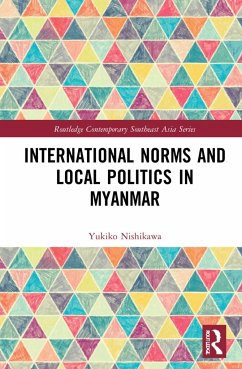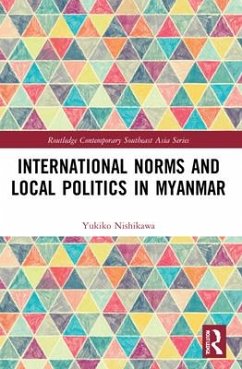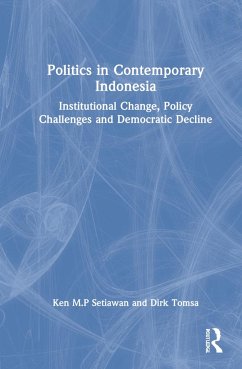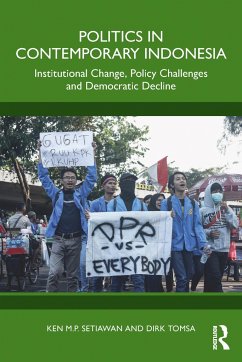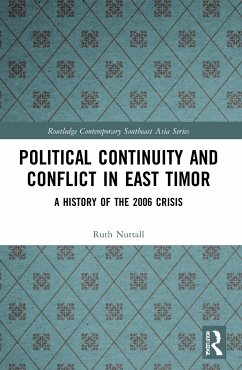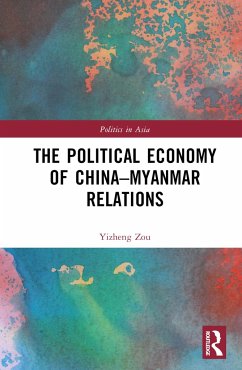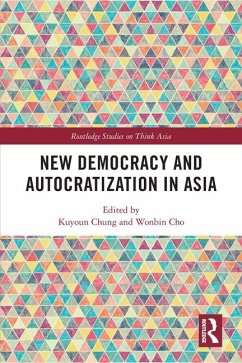
Presidentialism and Democracy in East and Southeast Asia
Versandkostenfrei!
Versandfertig in 6-10 Tagen
42,99 €
inkl. MwSt.
Weitere Ausgaben:

PAYBACK Punkte
21 °P sammeln!
Presidentialism and Democracy in East and Southeast Asia examines the impact of presidential systems on democracies by examining three distinct literatures - the perilousness of competing legitimacies of the executive and legislative branches, issues of institutional design (particularly regarding semi-presidentialism), and the rise of executive aggrandizement.Despite often intense political conflict and temporary instability in the East and Southeast Asia, presidential systems of various types - from relatively "pure" forms to semi-presidentialism and other hybrids - have largely been resilie...
Presidentialism and Democracy in East and Southeast Asia examines the impact of presidential systems on democracies by examining three distinct literatures - the perilousness of competing legitimacies of the executive and legislative branches, issues of institutional design (particularly regarding semi-presidentialism), and the rise of executive aggrandizement.
Despite often intense political conflict and temporary instability in the East and Southeast Asia, presidential systems of various types - from relatively "pure" forms to semi-presidentialism and other hybrids - have largely been resilient. Although there are signs of growing autocratization in several cases, presidentialism, associated with both accommodation and conflict, has usually not driven it.
This book's contributions to presidentialism debates will be of interests to students and scholars of comparative politics while it also offers detailed analysis of the presidency in these East and Southeast Asian cases.
Despite often intense political conflict and temporary instability in the East and Southeast Asia, presidential systems of various types - from relatively "pure" forms to semi-presidentialism and other hybrids - have largely been resilient. Although there are signs of growing autocratization in several cases, presidentialism, associated with both accommodation and conflict, has usually not driven it.
This book's contributions to presidentialism debates will be of interests to students and scholars of comparative politics while it also offers detailed analysis of the presidency in these East and Southeast Asian cases.





